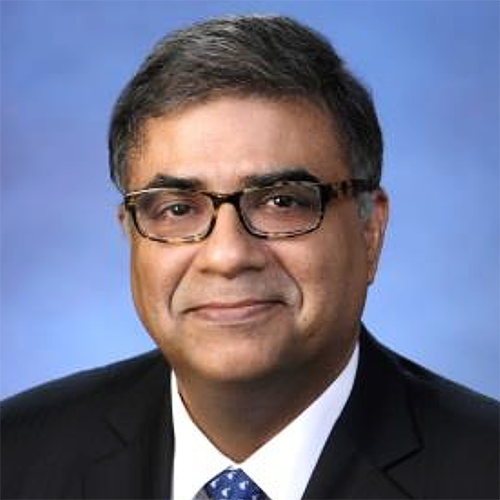
Asset service providers are grappling with new political, financial, and regulatory challenges, in a market that is being hit by changes reshaping the industry.
In response to these challenges, asset service providers have been evolving from mere custodians and fund administrators, to providers and managers of data and analytic systems using highly sophisticated technology.
Politics
On the political front, the asset servicing industry has long been characterized by stability, conservatism, and a slow pace of change. In previous decades the industry largely ignored, and was unaffected by, political developments.
On the political front, the asset servicing industry has long been characterized by stability, conservatism, and a slow pace of change. In previous decades the industry largely ignored, and was unaffected by, political developments.
But now clients and providers are spending more time worrying about how current political developments, such as Brexit and the rise of nationalism in certain markets, may impact their businesses.
Since asset servicing is a business that depends on global asset flows, any disruption to these flows that may arise from nationalistic sentiments seeping into the financial system, could have a negative impact on the industry.
One particular concern is that there may be some restrictions imposed on the use of global products by fund managers in some markets.
“We work a lot with fund managers that have products all over the globe. With Brexit happening and more nationalistic views in terms of “should we use local products or global products”, those sentiments can change the dynamics of our business very quickly,” says Pete Cherecwich, president of Corporate & Institutional services at Northern Trust.
His firm, which is a major custodian for Ucits funds issued out of Ireland, would definitely be impacted in the unlikely event that Irish Ucits funds are banned from being distributed in certain markets.
“If for some reason Irish Ucits couldn’t be distributed in Asia, for example, and everybody went to local products, that would be a bad thing for us. I worry that global trade wars and nationalism may get into financial services. It will hurt the global custodians because our business is based on the global flow of assets. I want people that are sitting in Hong Kong to invest all over the globe. We want a global market and capital to flow around. We want the ability for our clients to invest in products in different places,” Cherecwich says.
In the case of Brexit, there is a remote chance that the fund passporting rights for UK funds into the EU, possibly including Irish Ucits, may be terminated in the event no deal is reached between the British government and the EU.
Cherecwich, however, is hopeful that a deal that will provide for continued fund passporting between the UK and the EU will be reached eventually.
Fees
On the financial front, intense pressure to keep costs down on the part of institutional clients has translated into stronger and stronger fee pressure on their custodians and other asset service providers.
For now, the asset service providers have turned to the use of technology in order to increase efficiencies and reduce costs. But it remains to be seen how long they can continue to sustain this. But one thing is clear, the cycle of cost-cutting and increasing pressure on fees is not likely to end anytime soon.
“The speed at which we can invest in technology, to change and automate the process in order to offset the pressure on fees, is important. The challenge for the industry is: can we keep up, because pricing is coming down, and we’ve got to be able to react quickly to that,” Cherecwich says.
The NTUC Income Cooperative, Singapore’s largest insurer, recently outsourced its massive fund accounting requirements to BNY Mellon, which is in turn using its highly-sophisticated Eagle Investment Systems fund accounting platform to consolidate a task that used to be done by two separate asset service providers.
NTUC’s case illustrates one of the challenges facing insurers, pension funds, and other large asset owners all over the world, who have to perform fund accounting for thousands of members involving billions of dollars in assets.
“One challenge in fund administration is streamlining the reconciliation process which is often very manual and time-consuming. It is not uncommon to see some middle and back office staff having to stay very late to finish off that process. So, we help to automate that. We have a very elaborate and evolved process around reconciliation. We automate a lot of these functions so it’s very intuitive for the users so that they get to go home at a reasonable time,” says John Legrand, head of business development for asset servicing, Asia-Pacific at BNY Mellon and general manager for EMEA/APAC of Eagle Investment Systems.
In any case, the level of fees has levelled off in the last year, perhaps reaching economies of scale for both institutional clients and asset service providers.
“If I look around the globe, actually fees are not dropping anymore at a precipitous rate. That being said, it’s still competitive. We’re not getting more fees for the same services but we’re having to sell more products to make revenues,” Cherecwich says.
Regulation
On the regulatory front, the NTUC mandate illustrates how institutions and asset service providers are using technology to comply with new regulatory requirements and industry standards.
On the regulatory front, the NTUC mandate illustrates how institutions and asset service providers are using technology to comply with new regulatory requirements and industry standards.
On January 1 2018, the International Financial Reporting Standards (IFRS), which are basically new standardized rules for accounting, will take effect worldwide. In Asia, many insurers, pension funds, and asset owners are still in the process of transitioning to the new standards or have yet to do so.
By mandating BNY Mellon to do its fund accounting system, the Singaporean insurer is updating its systems in order to make it IFRS compliant.
Legrand says other institutional clients who are not in the public domain are also in the process of transitioning their older legacy systems to automated technology systems like Eagle in order to become IFRS compliant.
“There’s been a big adoption in the last couple of years as more and more institutions are starting to adopt IFRS. I think that’s really helpful for institutions that have historically struggled to get their reporting out on time and accurately,” Legrand says.
Data
In the process of using technology to streamline their service offerings and enhance their capabilities, many asset service providers have been tapping fintech companies and, to a certain extent, even becoming technology companies themselves.
In the process of using technology to streamline their service offerings and enhance their capabilities, many asset service providers have been tapping fintech companies and, to a certain extent, even becoming technology companies themselves.
Northern Trust, for example, is collaborating with IBM to tap blockchain technology for the private equity market. Early this year, the new platform became available for managing the administration of a private equity fund managed by Unigestion, a Geneva-based asset manager with US$20 billion in assets under management.
BNY Mellon has acquired three fintech companies, namely: Eagle Investment, Albridge, and Hedgemark, a sign of how seriously it is planning for its future in the fintech age.
“If you look at the history of custodians, they created services on top of the fact that they held all the assets. Custodians now are trying very hard to become information providers, while also holding the assets. Yes, we have an advantage because we have all the assets as a custodian, but that’s not where we compete anymore. Where we compete is the information and the data that we provide the clients,” Cherecwich says.
With the trend towards cost-cutting and enhanced efficiencies, many institutional clients have been outsourcing the management of their data to their asset service providers who then have to take over the challenges of managing these data.
“The problem when folks throughout the world talk about “big data” is that it can mean different things to different people and very often it’s unstructured data. What we do is we help to structure the data, take all the investment management data, format the data with full audit trails and history,” Legrand says.





.jpg)
.jpg)


